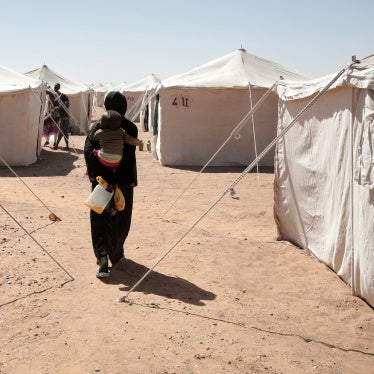We welcome the report of the Special Rapporteur on the situation of human rights in Eritrea and share his assessment that there have been no tangible improvements in the dire rights situation in Eritrea, including against the benchmarks which the Council had requested.
Since the last dialogue, the government has continued to subject its population to widespread forced labor and conscription, imposing restrictions on freedom of expression, opinion, and faith, and restricting independent scrutiny by international monitors.
Despite the recent release of a number of people detained purely for their religious beliefs, as spelt out in the Special Rapporteur’s report, individuals continue to be held incommunicado and detained indefinitely, denied basic due process rights, without access to legal counsel, judicial review, or family visits, some for decades.
We appreciate the Rapporteur drawing attention to grave violations of international humanitarian law committed by Eritrean troops in the conflict in Tigray, Ethiopia. Our own research shows that Eritrean forces massacred scores of civilians, including children, in the historic town of Axum in late November 2020. Eritrean forces have also committed horrific acts of sexual violence against women and girls, detained and beat displaced persons, pillaged private and public property, including livestock and harvests, burned crops, and destroyed or damaged other key civilian infrastructure including hospitals, key to people’s survival.
Unfortunately, Eritrea’s membership of the Human Rights Council has not led to greater respect for international standards or engagement with the Council’s procedures and Eritrea continues to deny access to the Special Rapporteur.
We call on the Human Rights Council to adopt a resolution:
- extending the mandate of the Special Rapporteur; and
- calling on Eritrea to co-operate with the Special Rapporteur.








